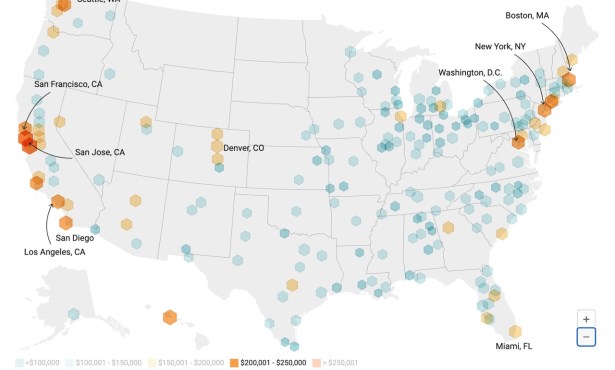Food-Scrap Recycling in Trouble
Councilmembers Say Program Isn't Economical
About the only thing to clearly emerge from the two excruciating hours of collective hand-wringing by the Santa Barbara City Council about looming garbage franchise negotiations is that City Hall’s pioneering food-scrap–recycling program could be in serious trouble. Councilmembers Dale Francisco and Randy Rowse expressed serious doubt that the program was financially or environmentally sustainable despite strenuous assertions to the contrary by city finance czar Bob Samario.
Francisco pointed out that trash rates will be going up for all customers to cover a $1-million shortfall in the food-scrap program. Samario countered that it was impossible to determine to what extent the shortfall was a function of the recession or of a rate structure that was not adequately calibrated to recover the true costs of doing business. Francisco has expressed concern that City Hall’s solid-waste managers have an inflated sense of the uniqueness of their mission. In fact, he’s suggested several times that the city’s solid-waste program—with eight employees—should be taken over by the County of Santa Barbara’s Public Works Department, which handles trash collection and recycling.
What brought all this to the fore was a motion to hire a trash consultant to the tune of $110,000 to help the city solicit competitive trash-hauling bids for the western half of Santa Barbara. That franchise is now held by Allied Waste Services, but comes due next year. Trash franchises are big business, and this contract spanning 10 years is worth $80 million. Normally, the council can be expected to rubber-stamp the hiring of such consultants, but Tuesday’s deliberations came after two previous efforts proved unsuccessful. In the political minutia of city government, that’s unheard of.
Some city officials are nervous that Mario Borgatello of MarBorg Industries—which serves the city’s eastern half and is competing with Allied for the other half—enjoys too much political access. Borgatello, who enjoys a stellar reputation as a trash hauler and recycler, has also backed three of the current councilmembers. Aside from the intense competition between MarBorg and Allied, there are broader agendas in play.
The county ‘s landfill at Tajiguas has 14 years left before it must close. County trash planners hope to extend the life of the dump by embracing some form of technology that converts trash to energy. And food scraps provide that technology with an essential biochemical boost. City trash planners worry conversion technology may prove prohibitively expensive and don’t wish to commit their food scraps to the county’s solution. When Councilmember Dale Francisco demanded to know, as he repeatedly did, how the city’s trash agenda differed significantly from the county’s, that was the answer no one gave.


